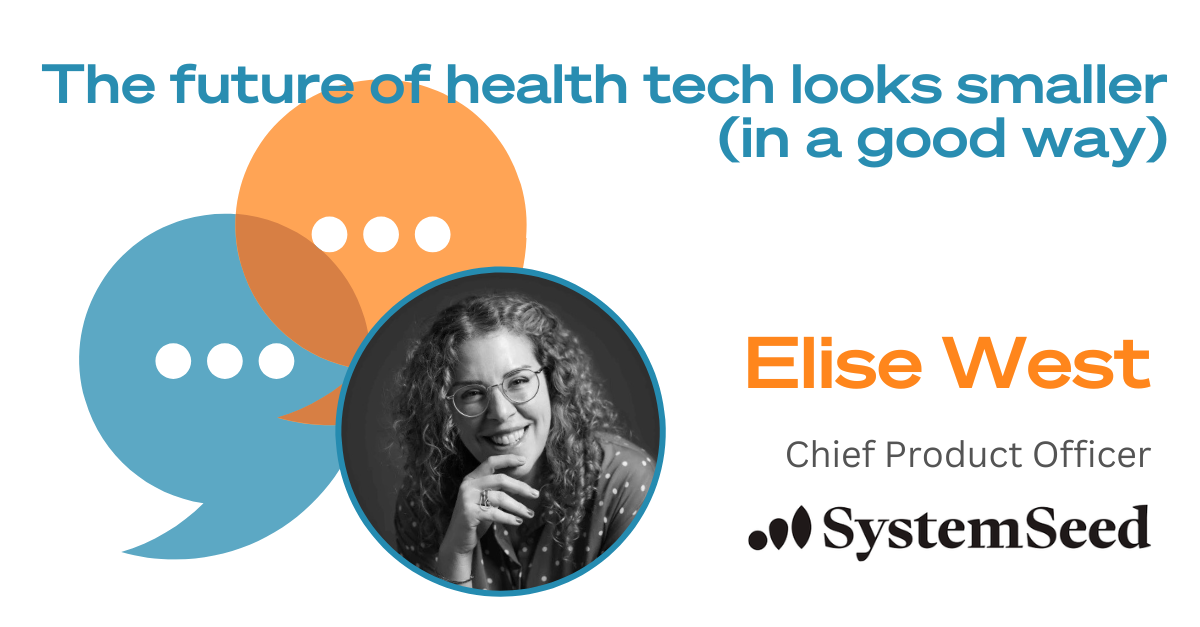A reflection on openEHR, AI innovation and what emerging open-source approaches could mean for the future of digital healthcare.
By Elise West, Chief Product Officer, SystemSeed
I recently attended a healthtech conference called EHRCON25, conveniently for me, located in Barcelona.
We regularly design and build open-source platforms for the health sector, typically using Drupal and React. However, I hadn’t come across openEHR before. As far as my non-developer brain could understand it, openEHR is a vendor-neutral data infrastructure — a shared core data layer with common models and repositories. Fine, there is no truly non-techy way to describe it. I tried.
Rethinking dependency on large EHR systems
Before this conference, I hadn’t given much thought to how dependent most health systems are on large, monolithic and expensive electronic health record (EHR) systems. Within the first talk, it became clear what a challenging position this creates for both national and private healthcare organisations worldwide.
A standout talk: AI and the Agentic Future
My favourite talk of the conference was titled “AI and the agentic future” by Bart de Witte – clearly a very knowledgeable man who also did everyone the courtesy of keeping the server architecture diagrams and long acronyms to a respectable minimum. This was appreciated. But more importantly, it genuinely opened my eyes to a few aha moments around the future use of AI, particularly in health.
Small Language Models (SLMs)
Working with lean processes and agile methodologies, I am always interested in anything that supports a less is more approach. So learning that, beyond LLMs (large language models), there are also SLMs (small language models), was honestly delightful. LLMs are as much a buzzword as “AI” itself – so why introduce SLMs (other than the fact they sound undeniably cuter)?
Well, many agentic tasks are routine and repetitive, meaning SLMs are actually perfectly sufficient. They’re faster, more cost-effective, and more sustainable. And frankly, we should all be thinking about reducing unnecessary energy use at this point.

The gap: Open source vs private sector
Despite this promising evolution, open-source EHR ecosystems are still estimated to be around six months behind private corporate equivalents. In general technology terms, six months is significant. In health technology, it feels like an era.
There were audience questions and discussion about clinicians quietly using ChatGPT to help with diagnosis. And various speakers basically shrugged and said, “You can’t stop it, not until we catch up with medically approved alternatives.” As a layperson when pondering on my next doctor’s appointment, this is… well… petrifying.

Real-world multi-agent AI examples
There were, however, some encouraging examples of multi-agent AI systems already in use in health systems:
- DeepRare and RareAgents — analysing large amounts of complex data to significantly improve diagnosis of rare diseases.
- Oncologie — An oncology clinical decision-making system that is already tested and regulatory-ready.
These examples suggest a practical pathway already, for open source AI to support clinicians more effectively in complex diagnostic work.
Looking ahead
As with all AI, in healthcare there are key considerations around ethics, data governance, patient safety and regulation. However, the potential benefits are profound. If open, standards-based innovation is supported — and not held back by unnecessary bureaucracy — the future of health technology could be both positive and transformative.
Bringing everyone into the conversation
As I looked around this fascinating, and admittedly highly technical conference, it was clear that alongside the innovation and future-focused discussions, there remain some real challenges. There were enthusiastic academic open-source advocates, deeply committed to shared data standards. There were health system leaders, understandably stretched by bureaucracy and long-term contracts with large tech providers. And there were smaller health tech companies working hard to innovate and move forward.
However, one group was noticeably mainly absent: practicing medical professionals.
If open-source approaches to AI in healthcare are going to succeed in a meaningful and sustainable way, clinicians need to be part of the conversation. They need to feel supported, informed, and confident in the tools being developed — not just presented with them once decisions are already made. The private tech sector has already become deeply embedded in everyday life through ease of use and accessibility; the open-source community will need to match that level of engagement at speed, if these systems are to be widely adopted in real clinical environments.
Bringing clinicians in early, actively and respectfully may be one of the most important steps in shaping the future of health technology.
SystemSeed is a purpose-driven digital agency on a mission to create positive change through technology. For over 15 years, we’ve partnered with “for good” organisations to design and deliver exceptional digital experiences that make a real difference in the world.
We believe technology should empower – not restrict. That’s why we use open source solutions that give our clients freedom, flexibility, and long-term value without the high costs or lock-ins of proprietary systems. Our work spans health tech, education, government, and not-for-profits – helping each organisation do more of what matters.
Elise West, Director of Product Strategy and Design, leads with empathy, insight, and a laser focus on impact. She helps health, charity, and government clients turn bold ideas into powerful digital platforms through deep discovery, thoughtful design, and agile delivery – ensuring every project drives meaningful results.

Leave a Reply